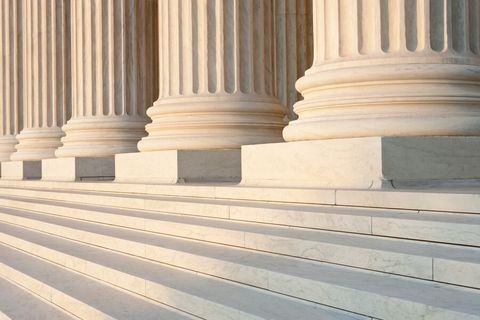Courts May Not Rule on Invalidity of Unasserted Claims
Client Alert | 1 min read | 09.09.08
In 800 Adept, Inc. v. Murex Securities, Ltd., et al. (Nos. 2007-1272, -1356; August 29, 2008), the Federal Circuit affirms a trial court's judgment of invalidity of certain asserted patent claims, reverses the trial court's judgment of invalidity with respect to unasserted patent claims and of tortious interference, and vacates the trial court's judgment on infringement and invalidity of certain claims.
In reversing the trial court's judgment of invalidity on the unasserted claims, the Federal Circuit determines that the unasserted claims were not placed at issue in the litigation and, therefore, the trial court erred in ruling on the validity of the claims. The Court noted that the assertions of validity must have been "actually litigated by the parties" for there to be a finding of invalidity.
In construing claims as the basis for vacating the finding of infringement, the Federal Circuit uses the prosecution history to support the construction of claims discerned from the claim language and written description, even though the particular claim limitation being construed was not part of the prosecution history at the time certain statements were made. The court finds that since the applicant was "quite clear throughout prosecution that his invention" operated in a certain way, it can be used to support the claim construction discerned from other intrinsic evidence.
Contacts
Insights
Client Alert | 2 min read | 11.14.25
Claim construction is a key stage of most patent litigations, where the court must decide the meaning of any disputed terms in the patent claims. Generally, claim terms are given their plain and ordinary meaning except under two circumstances: (1) when the patentee acts as its own lexicographer and sets out a definition for the term; and (2) when the patentee disavows the full scope of the term either in the specification or during prosecution. Thorner v. Sony Comput. Ent. Am. LLC, 669 F.3d 1362, 1365 (Fed. Cir. 2012). The Federal Circuit’s recent decision in Aortic Innovations LLC v. Edwards Lifesciences Corp. highlights that patentees can act as their own lexicographers through consistent, interchangeable usage of terms across the specification, effectively defining terms by implication.
Client Alert | 6 min read | 11.14.25
Microplastics Update: Regulatory and Litigation Developments in 2025
Client Alert | 6 min read | 11.13.25




